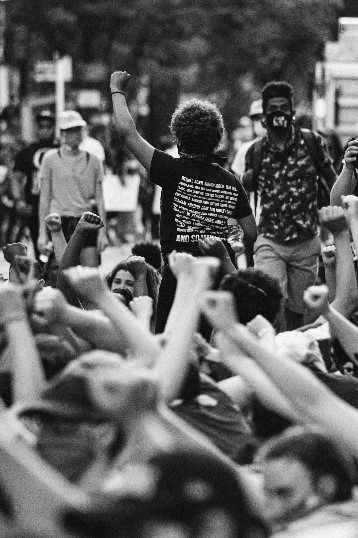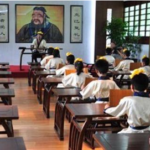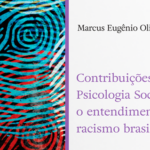Nilma Lino Gomes, Professor Emeritus, School of Education, Universidade Federal de Minas Gerais (UFMG), Belo Horizonte, Minas Gerais, Brazil.
In the special session “Affirmative Action for the Promotion of Racial Equality in Education: Struggles, Achievements, and Challenges!”, the journal Educação & Sociedade (vol. 42) presents texts that analyze different experiences of implementing affirmative action policies for black, quilombola, and indigenous people in different parts of Brazil. Basic Education and Higher Education are the central focus of the theoretical reflections, which reveal different levels of academic, pedagogical, social and political roots of the current proposals. The quotas, considered one of the most radical modalities of the affirmative action policies, when implemented, have enabled a significant change in the guarantee of the right to education for the subjects of diverse social groups historically treated as unequal. Besides education, the federal and state public administration has also been impacted by the presence of these diverse subjects due to the adoption of quotas for blacks in public competitions.
the special session “Affirmative Action for the Promotion of Racial Equality in Education: Struggles, Achievements, and Challenges!”, the journal Educação & Sociedade (vol. 42) presents texts that analyze different experiences of implementing affirmative action policies for black, quilombola, and indigenous people in different parts of Brazil. Basic Education and Higher Education are the central focus of the theoretical reflections, which reveal different levels of academic, pedagogical, social and political roots of the current proposals. The quotas, considered one of the most radical modalities of the affirmative action policies, when implemented, have enabled a significant change in the guarantee of the right to education for the subjects of diverse social groups historically treated as unequal. Besides education, the federal and state public administration has also been impacted by the presence of these diverse subjects due to the adoption of quotas for blacks in public competitions.
The authors of the articles are teachers of basic and higher education, some of them working in undergraduate and graduate courses. They present studies and theoretical reflections individually or written in partnership with colleagues and students. They are scholars who dialogue with the Brazilian reality and with the transformations, tensions, and advances resulting from the implementation of affirmative action. Affirmative action only became a political reality after a long process of denunciation of racism by the Black Movement throughout the 20th century. This social movement is the main political protagonist of the social pressure exerted on the State, forcing it to leave its position of state neutrality in the face of racism and face the urgency of implementing concrete policies and practices to overcome this perverse phenomenon.
This situation was accelerated after the 3rd World Conference against Racism, Racial Discrimination, Xenophobia and Related Intolerances, held in September 2001, in Durban, South Africa, with more than 16,000 participants from 173 countries. Brazil was present and ratified, along with other countries at the Conference, the Durban Declaration and Action Plan. This decision of the Brazilian government, at the time, implied its commitment to the implementation of affirmative action in the fight against racism and racial inequality. It is important to emphasize that the Brazilian State’s commitment was not only the result of an international public recognition. It was the result of pressure from the Black Movement, represented by militants from various entities and states, at the Durban Conference, who demanded from the Brazilian State a position contrary to Brazilian racism. It is worth remembering that, in 2001, IPEA published a research that expressed the weight of racial inequality on the living conditions of the Brazilian population in the 1990s. The alarming picture of racial inequality in education was one of the highlights of this research, corroborating the Black Movement’s struggle for an anti-racist education and affirmative action.

Image: Unsplash
This international context impacted the national context. From 2003 to early 2016, Brazil experienced affirmative action as a reality for the first time. The rise of a leftist party to federal executive power in 2003, committed to the struggle for equality, for the affirmation of rights, and for dialogue with emancipatory social movements, made it possible for affirmative action to become a reality as policies to promote racial equality, especially in education. State policies.
In the current context of democracy at risk established in the country since the impeachment of President Dilma Rousseff in 2016, to the rise of the extreme right to power in 2018 these policies have suffered a series of attacks, requiring us to fight for their continuity.
The hostile moment that Brazilian society is going through cannot cloud the existing emancipatory experiences and practices of affirmative action. It is important, therefore, to socialize them in the light of theoretical and critical analyses, diverse methodologies, and through an academic debate that considers and values the social experiences of the subjects of affirmative action.
This complex trajectory, its impacts in different Brazilian realities, limits and challenges are expressed in the different articles of the Special Session. It is important to highlight that the focus on the current Brazilian theoretical and academic production expresses something very important: Brazil is the country that has carried out a singular experience of affirmative action aimed at black men and women, expanding it to other social and ethno-racial segments that live a historical situation of inequality. The existence of the Secretariat for Policies to Promote Racial Equality (SEPPIR), from 2003 to the beginning of 2016, as the ministry responsible for developing affirmative action policies in the most diverse areas and transversally with other ministries, can be considered unprecedented in the world. This richness alone justifies our having an extensive Brazilian theoretical production on the subject, which reveals an intense process of struggles, achievements, and challenges.
Read more
GOMES, N.L. O movimento negro educador: saberes construídos nas lutas por emancipação. Petrópolis: Vozes, 2017.
INESC Instituto de Estudos Socioeconômicos. Um país sufocado – Balanço do Orçamento Geral da União 2020. 2021 [viewed 17 January 2022]. Available from: https://www.inesc.org.br/umpaissufocado/
Instituto de Inclusão no Ensino Superior e na Pesquisa. 2021 [viewed 17 January 2022]. Available from: https://inctinclusao.com.br/
SANTOS, A.P, CAMILLOTO, B. and DIAS, H.G. Heteroidentificação na UFOP: o Controle Social Impulsionando o Aperfeiçoamento da Política Pública. Revista da ABPN [online]. 2019, vol. 11, no. 29, pp. 15-40. ISSN: 2177-2770 [viewed 30 November 2021]. Available from: http://abpnrevista.org.br/revista/index.php/revistaabpn1/article/view/749
SILVÉRIO, V.R. Ação afirmativa e o combate ao racismo institucional no Brasil. Cadernos de Pesquisa [online]. 2002, no. 117, pp. 219-246. ISSN: 1980-5314 [viewed 30 November 2021]. https://doi.org/10.1590/S0100-15742002000300012. Available from: https://www.scielo.br/j/cp/a/RkKqjbycXDYS93kh8bNdLLs/abstract/?lang=pt
To read the articles, access
Educação e Sociedade. 2021, vol. 42. Available from: Ações afirmativas de promoção da igualdade racial na educação: lutas, conquistas e desafios!
GOMES, N.L., SILVA, P.V.B. and BRITO, J.E. Affirmative action for the promotion of racial equality in education: struggles, achievements and challenges. Educação & Sociedade [online]. 2021, vol. 42, e258226, ISSN: 1678-4626 [viewed 13 December 2021]. https://doi.org/10.1590/ES.258226. Available from: https://www.scielo.br/j/es/a/3PyCNZ5FhDNjjchnPBGKhJw/abstract/?lang=en
External Link(s)
Educação e Sociedade – ES: www.scielo.br/es
Educação e Sociedade – redes sociais: Facebook, Twitter, LinkedIn
Como citar este post [ISO 690/2010]:


















Recent Comments